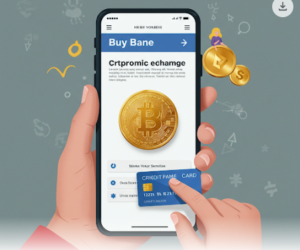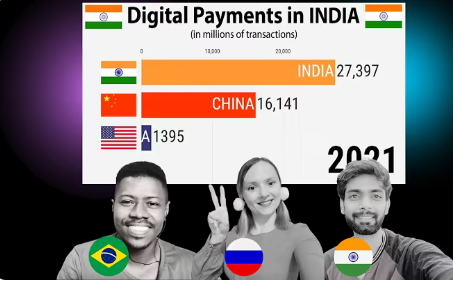Kraken users made a remarkable move by purchasing almost 4,000 BTC worth over $326 million in just 24 hours. This shows how buying crypto with credit cards has become easier than ever. The surge in trading proves that more people now accept cryptocurrency transactions, and Bitcoin continues to lead the market since its 2009 launch.
Research reveals that major trading platforms now give users multiple ways to pay. Investors can use credit cards, debit cards, and bank transfers to buy cryptocurrencies. Kraken’s platform offers more than 200 cryptocurrencies for trading, which gives investors unprecedented flexibility to buy and trade digital assets. The digital world has come a long way since Bitcoin’s early days, and traditional financial institutions now welcome cryptocurrency transactions more than ever.

Major Banks Now Accept Credit Cards for Crypto PurchasesMajor Banks Now Accept Credit Cards for Crypto Purchases
Financial Giants Embrace Crypto Credit Card Purchases
The credit card cryptocurrency buying scene is going through a major transformation right now. Traditional banks that once said no are starting to say yes to crypto transactions. These changes come from new rules and what customers just need.
The process isn’t simple for most people today. Credit card companies treat crypto purchases like cash advances and charge 3-5% fees with steep 30% interest rates. Crypto exchanges don’t make it any easier – Binance wants up to 2% while Coinmama asks for about 3%.
Big banks still play it safe. Wells Fargo, Citibank, and Bank of America won’t let you buy crypto with their credit cards. But Bank of America’s CEO Brian Moynihan says banks will welcome crypto payments once proper rules are in place. His bank already owns “hundreds of patents on blockchain” and knows exactly how to jump in.
The SEC made things easier by dropping a rule that forced banks to count bitcoin and other tokens as debt on their books. This change by the new administration helps U.S. companies and financial firms work with cryptocurrencies more freely.
While restrictions exist, new options keep popping up. The Gemini Credit Card gives crypto rewards without any fees – you get 4% crypto back on gas and EV charging, 3% on dining, 2% on groceries, and 1% on everything else. Some cards now let you turn rewards into cryptocurrency, which is a budget-friendly way to start.
Banking giants see the business potential clearly. With more than 580 million crypto users worldwide, banks could attract tech-savvy customers by adding cryptocurrency services. JP Morgan led the way among traditional banks and launched its own stablecoin in 2019. Goldman Sachs brought back its cryptocurrency trading desk in 2021, showing Wall Street’s growing acceptance of digital assets.
Retail banks might find success by connecting crypto with regular payment platforms as they look to expand their cryptocurrency services.
Binance and Coinbase Lead Integration with Banking Systems

Image Source: GoodCrypto
Binance and Coinbase lead the way in credit card integration. They have built sophisticated systems that let users buy cryptocurrency directly with credit cards. These platforms work with payment processors to create simplified purchasing experiences and implement strong verification protocols.
Users can now buy crypto faster on Binance using Visa, Mastercard, and other major credit cards through payment processors like Simplex. Coinbase also lets users make credit card purchases with specific limits and locations, making the process available to more people.
Both exchanges need Know Your Customer (KYC) verification before they allow credit card transactions. Users must submit government-issued identification and complete simple personal information checks. A processor states that “For transactions of USD 150.00 or more, you might need to complete a brief KYC process for added security”.
Each platform and payment processor sets different transaction limits. Simplex, which works with many exchanges including Binance, has “a daily transaction limit of 20,000 USD, and a monthly limit of 50,000 USD, including fees”. These limits start from your last purchase rather than calendar days.
Credit card purchases come with higher fees than other payment methods:
- Exchanges charge 2-3% for credit card transactions
- Credit card issuers might treat crypto purchases as cash advances with 3-5% extra fees
- Interest starts adding up right away
The higher costs come with benefits. Platforms deliver cryptocurrency “within 10 minutes to 1 hour” after purchase confirmation.
Mastercard has launched Crypto Secure to curb fraud. This system helps issuers “identify potential crypto risk exposure” and “make detailed evaluation of virtual asset service providers”. Visa has also created strong fraud prevention measures, noting that “most fraud reports related to crypto consist of account take over (ATO), unauthorized account use, or counterfeit or compromised payment account details”.
These integrations mark a crucial step toward mainstream cryptocurrency adoption and balance availability with security needs.
Regulatory Frameworks Evolve Around Credit-Based Crypto Buying
Credit card purchases of cryptocurrency face different rules around the world. This creates a complex situation for users and financial institutions. Rules for compliance differ by region and governments are changing regulations faster to tackle challenges from digital assets.
The Markets in Crypto-Assets (MiCA) framework became fully active in Europe in January 2025. This framework provides complete guidelines about stablecoin usage and credit-based crypto transactions. The framework stands out as the most unified effort to standardize crypto rules across multiple countries.
South Korea’s rules for credit card crypto purchases are well-laid-out. Companies that issue crypto payment cards need to get authorization from the Financial Services Commission under their Electronic Financial Transactions Act. The Protection of Virtual Asset Users Act that came out recently deals with user protection and unfair trading. The Ministry of Economy and Finance rolled out new rules for cross-border virtual asset transactions in October 2024. These rules need advance registration and monthly reports to the Bank of Korea.
Tax implications are crucial to think over when buying crypto with credit cards. The IRS sees digital assets as taxable property. You need to report them whatever your transactions make profit or loss. Therefore, you must keep detailed records of:
- Purchase date and time
- Number of units
- Fair market value at transaction time
- Basis of digital assets sold or disposed of
AML/KYC requirements add another layer of complexity, with rules varying by country. The Financial Action Task Force’s Travel Rule has become a global standard in spite of that. This rule makes crypto service providers share transaction details when amounts go over $1,000.
Financial institutions don’t deal very well with staying compliant across these scattered regulatory environments. The situation looks challenging, but Project Mandala wants to make cross-border compliance easier. It also offers real-time monitoring options for central banks. This project arranges with G20’s goals to improve cross-border payments.
Customers should check their local rules before they start buying crypto with credit cards as regulatory frameworks keep developing worldwide.
Conclusion
Big banks now embrace cryptocurrency’s staying power. This marks a dramatic change from their earlier cautious approach. JP Morgan leads this revolution with new offerings, while Binance and Coinbase let customers buy crypto with credit cards.
Some roadblocks still exist – especially when you have high fees and complex regulations. However, instant transactions and wider acceptance make credit card crypto purchases worth considering. Europe’s MiCA framework and South Korea’s well-laid-out guidelines show a clearer path toward standardized crypto transactions.
Traditional banks will likely offer more crypto services as regulations become clearer. Payment giants like Visa and Mastercard’s improved security measures will make credit card crypto purchases safer and easier. The SEC’s decision to remove restrictive accounting rules helps U.S. financial institutions handle digital assets better.
Credit card acceptance for crypto purchases shows how digital currency continues to go mainstream. Banks are adapting their services and regulations are becoming clearer. This trend will speed up and make cryptocurrency more available to regular investors.
FAQs
Q1. Which banks allow credit card purchases of cryptocurrency? American Express is one of the few major credit card issuers that permit cryptocurrency purchases. However, be prepared for high fees, sometimes 4% or more, on these transactions. Some banks like JP Morgan and Goldman Sachs are also becoming more crypto-friendly, though policies vary.
Q2. Are there any crypto-friendly banks in the USA? Yes, some banks in the USA are becoming more crypto-friendly. Ally Bank, for instance, allows customers to use their debit cards for cryptocurrency purchases and facilitates transactions on crypto exchanges without significant restrictions. However, policies can vary widely between institutions.
Q3. How can I buy cryptocurrency if my bank doesn’t support direct purchases? If your bank doesn’t support direct crypto purchases, you have several options. You can use platforms like Coinbase or Paxful and fund your account through ACH transfers or wire transfers. Some people also use services like Cash App to buy Bitcoin. Always verify the legitimacy of any platform before making transactions.
Q4. What are the fees associated with buying crypto using a credit card? Fees for credit card crypto purchases can be substantial. Most exchanges charge 2-3% for credit card transactions. Additionally, some credit card issuers categorize these purchases as cash advances, adding another 3-5% in fees. Interest on these transactions often begins accruing immediately, so it’s important to understand all associated costs.
Q5. Are there any regulatory considerations when buying crypto with a credit card? Yes, there are several regulatory considerations. Cryptocurrency purchases are subject to Know Your Customer (KYC) and Anti-Money Laundering (AML) regulations. The specific requirements can vary by country and platform. Additionally, in the US, the IRS classifies digital assets as taxable property, requiring detailed record-keeping of all transactions for tax purposes














Leave a Reply